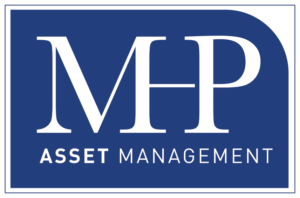On numerous occasions, I have mentioned that I do not care for bond funds and would much prefer to ladder a bond portfolio to the client’s needs and wants. Bond funds are perpetual, which means they really have no maturity date, much like preferred or dividend paying stock. The problem with not having a maturity date is that you are at interest rate risk that you, as the fund participant, can’t control. If you owned individual bonds, bills, notes, agency paper, zero coupons or even CD’s, then you could sell the bond for profit or loss, hold to maturity, or if called by a provision in the bond that makes it callable. You do not defer the decision regarding tax consequences to the fund manager. He or she doesn’t know your situation and really does not care. Bond mutual funds are investment vehicles used by many retail brokers who lack the ability or knowledge to construct an individualized fixed income portfolio. If you currently have “bond funds” in your portfolio, check to see if they have an “A” or “C” imbedded in the ticker symbol. If so you should evaluate the commission and internal expense associated with these share classes. I have seen many of these “loaded” funds that offer more yield to the broker, rather than the client.
So, if you are going to manage a fixed income portfolio or have an asset manager handle it, then you should know something about bonds. Corporate bonds are typically a good blend of yield and reasonable safety. Beware that there are junk bonds in almost all classes of bonds, but typically found in corporate issuance or municipal. A fixed income portfolio is not the place to take risk in my opinion.
A typical bond offering may look like this:
Bristol-Meyers Squibb Co bond 3.250 11/1/2023 A2 A+ 101.434- 101.733 3.011
This offering is pretty straight forward, not callable, just a typical corporate bond. The first section simply tells us who is offering the bond and what the coupon or yield is. Then it shows the date of maturity followed by two rating agencies grading. These are good quality bonds. Then the bid price for the bond followed by the ask price. Then the yield to maturity. You would notice that the yield to maturity is not as high as the coupon. The reason is that we would pay a premium for this bond which lowers the yield that we receive. Par is considered 100, and if MHP were buying a different issuance, MHP may get a discount, like 960 that would increase yield to maturity but doesn’t affect the coupon payment. This makes a well-constructed portfolio of individual bonds a source of income that is steady and sustainable.
When I refer to laddering, I am simply structuring the portfolio so that we have maturities that are spread across a time horizon designed for your needs. Bond prices will fluctuate with changes in interest rates or risks, but if you hold your bond or bonds until maturity you should get exactly what we bargained for in the beginning. Sometimes you may get the opportunity to sell early for capital appreciation or loss, but the point is, that it is a choice you and your portfolio manager consider, not a bond fund managers choice. You are also immunized against interest rate risk because you simply can reinvest the maturing bonds at the current higher or lower rate interest rates.
Recently, the US interest rate yield curve has been flattening. This allows a bond portfolio manager, like myself, to shorten the duration of your portfolio and maintain a yield in the 5% range, which is the current “bogey” that most of my clients want.
Interest rate risk is one of two risks associated with bonds, credit risk is the other. Your fixed income portfolio is no place for un-checked risk. MHP Asset Management will place “investment grade” bonds in a portfolio. The risk/reward is not worth using “high yield” AKA junk bonds for the small amount of additional yield they derive. High yield is also highly correlated to the equity markets, thus allowing your fixed income portfolio to move in the same direction as the stock (equity) markets. This violates modern portfolio theory which calls for multiple asset classes that are non or low correlated to make up an asset mix that reduces risk and enhances yield over time.
So, if you have bond funds, I encourage you to manage or have an asset manager design and manage your own personal portfolio that just for you and your special situation. Many people are suspicious of bonds because of potentially rising interest rates. A well-constructed bond ladder can mitigate some of this interest rate risk by having the bonds mature at specific intervals, thus allowing the portfolio manager to reinvest at current rates. This is referred to as “immunizing” the portfolio against rising interest rates.
Mark Patterson is Chief investment officer with MHP Asset Management and can be reached at (603) 447-1979 or mark@mhp-asset.com.



























